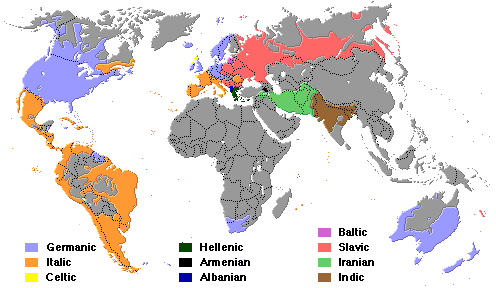
Posted on 11/11/2005 1:09:32 AM PST by AlaskaErik
A study of DNA from ancient farmers in Europe shows sharp differences from that of modern Europeans — results that are likely to add fuel to the debate over European origins.
Researchers led by Wolfgang Haak of Johannes Gutenberg University in Mainz, Germany, argue that their finding supports the belief that modern residents of central Europe descended from Stone Age hunter-gatherers who were present 40,000 years ago, and not the early farmers who arrived thousands of years later.
But other anthropologists questioned that conclusion, arguing that the available information isn't sufficient to support it.
Haak's team used DNA from 24 skeletons of farmers from about 7,500 years ago, collected in Germany, Austria and Hungary. Six of the skeletons — 25 percent — belonged to the "N1a" human lineage, according to genetic signatures in their mitochondrial DNA, which is inherited from the mother.
The N1a marker is extremely rare in modern Europeans, appearing in just 0.2 percent.
"This was a surprise. I expected the distribution of mitochondrial DNA in these early farmers to be more similar to the distribution we have today in Europe," co-author Joachim Burger, also from Johannes Gutenberg University, said in a statement.
"Our paper suggests that there is a good possibility that the contribution of early farmers could be close to zero," added co-author Peter Forster from the University of Cambridge in England.
Absence of the marker in modern people indicates they are descended from ancient hunter-gatherers rather than the later-arriving farmers, the researchers said.
But others challenged that conclusion.
"The data are new, the analysis is not compelling, and the conclusions are illogical," said anthropologist Milford H. Wolpoff of the University of Michigan.
Anthropologist Joao Zilhao of the University of Bristol, England, noted that the study didn't compare the DNA of the ancient farmers with that of the ancient hunter-gatherers, adding that there are plenty of hunter-gatherer burials in German cave sites that could have been sampled for comparison.
Without that comparison it's hard to say that the difference between modern DNA and that of the ancient farmers means current people are descended from the ancient hunter-gatherers.
"In this particular case, the reason may be because of a farmer input that was subsequently diluted, assuming that the N1a haplotype is a marker of spreading farmers, and that it was as rare in pre-Neolithic Europe as it is today," Zilhao said.
But, he added, "I see nothing in the data that would necessarily carry the exclusion of, for instance, the opposite hypothesis ... that (the N1a marker) represents the incorporation of hunter-gatherer females in the farming communities that are coming into Europe about 7,500 years ago, that incorporation being in such small numbers that, eventually, it all but disappeared."
The research was funded by the German Federal Ministry for Education and Research.



I take it they won't present this as "sugar and spice and everything nice".
How about French Socialists?
Scum filled bags and surrender flags, that's what French Socialists are made from...
OK, not contributing to the intellectual content here, but thank you for letting me vent!
Very interesting post BUMP!
well, now that we know todays europeans are not native, i guess more weight should be given to the idea that europe really was islamic in the formative years. reclaiming what was once yours is ok with me. sarcasm off.
The term Indo-European language group does not mean the European languages came from India but rather that they all seem to have a common origin.
Early Bureaucrat-Man?
Sanskrit is the "common origin".
Aha denial,....... but that the modern thoery of anthropology, cant help it.
Face it, you guys came from India.
This is interesting. Evolution of the species is a good description of life on earth. Everybody recognizes that languahge has evolved--Spanish, Italian, French, Portuguese, Romanian from Latin. English, modern German, Dutch from Old Teutonic. Etc. Evolution of language is well-documented, showing modification over generations, selection based on surroundings, and nobody pretends it was "intelligently designed".
Seems to be a good model for evolution vs. creationism.
We use a couple of Gyspy/Sanskrit words commonly. "Punch" means five, five flavors for a drink or five fingers for a fist to hit you with. Also "shiv" for blade or knife.
Of course language was intelligently designed. It was clearly designed by intelligences to improve communication of concepts and ideas.
Obviously, though, these intelligences designed and modified it on an ad-hoc basis.
Oddly enough, Esperanto, an intelligently designed language, has not caught on. Maybe designing language in an ad-hoc manner has some real advantages over pre-planning it?
The article says nothing, to small a sample to be significant.
You don't believe language changes as a result of mental reflection and effort?
The evidence that language is the result of not merely intelligent agents, but agents with exceptionally large brains, is not only self-apparent, it is overwhelming.
If this weren't true, rocks would speak--and in local dialects.
Esperanto is to languages what communism is to economics.
Disclaimer: Opinions posted on Free Republic are those of the individual posters and do not necessarily represent the opinion of Free Republic or its management. All materials posted herein are protected by copyright law and the exemption for fair use of copyrighted works.